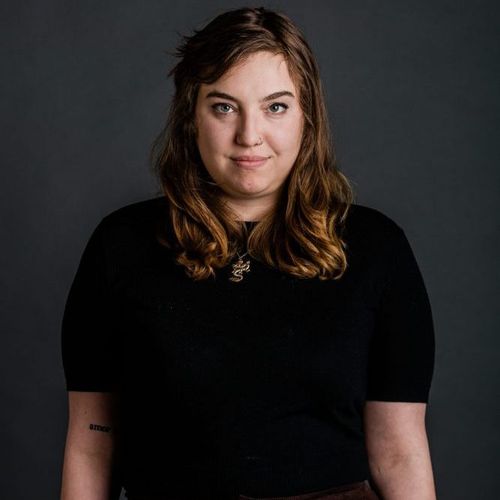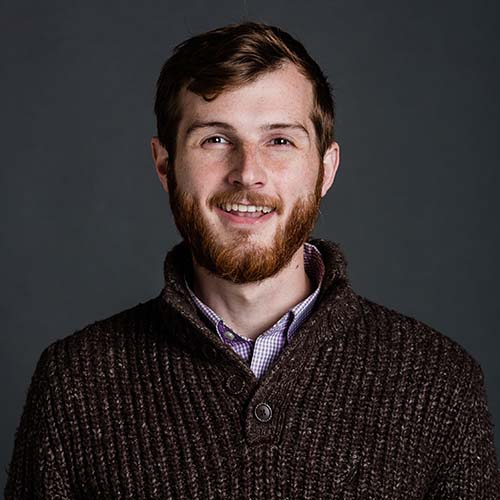Today I Learned: The Smell of Formaldehyde Makes You Hungry

The Smell of Formaldehyde Makes You Hungry
In the first episode of an all-new BU Today podcast, we sit down with sophomore Suzie Marcus to discuss her favorite class, HS 369: Gross Human Anatomy
You can also find this episode on Apple Podcasts, Spotify, Google Podcasts, and other podcast platforms.
The classes we take can change our perspectives and shape our lives, and we think that’s something worth celebrating. Our new podcast, Today I Learned, is all about the classes at BU that have had a real effect on students in our community; we want to know all about the classroom environment, professor, subject matter, and the cool facts that make a lasting impression.
For our first episode, we’ve invited Suzie Marcus (CAS’26) to tell us all about her favorite class, Sargent HS 369: Gross Human Anatomy. Marcus wants to go into neurology, but she says she loves the broad approach to the human body that Elizabeth Co, a senior lecturer at the College of Arts & Sciences, presents in class. This class is half lecture and half lab (featuring lots of cadavers and human bones) and, according to Marcus, is perfect for anyone thinking about nursing, premed, veterinary studies, biomedical engineering, or “anyone who has a fascination with science and they aren’t squeamish.”
Want to be our next guest? Tell us about your favorite class here. Undergraduates, graduate students, and recent postgraduates are welcome to submit.
Takeaways
- Cadaver labs aren’t for the faint of heart—but most premed students know what to expect, and squeamishness isn’t an issue. (It helps if you watch surgery videos on YouTube in your spare time.)
- What happens when a muscle tears, a bone fractures, or a tumor appears? Elizabeth Co, who teaches Marcus and her classmates, wants her students to always consider the “downstream effects” when engaging in case studies.
- The smell of formaldehyde can trigger a hunger effect in some people, which is why it’s good to have a coffee shop nearby the lab.
Transcript
Sophie Yarin: Hello everyone and welcome to Today I Learned, a BU Today podcast where we explore fun facts and ideas across a multitude of disciplines. We’ll be interviewing students about exciting things they learned in their favorite classes at BU. From changing majors to picking career paths, single classes can have a transformative impact on their future. I’m your host, Sophie Yarin, and I’m investigating how the things we learned in the classroom affect our lives. So, to do that, we’re going to be speaking directly to BU students, which is why we have Suzie Marcus joining us in the studio today. Suzie, thank you so much for being here.
Suzie Marcus: Thanks for having me.
Yarin: So, Suzie, you’re a premed student and a sophomore at the College of Arts & Sciences. Tell us a little bit about yourself. Where are you from?
Marcus: I’m from Bedford, Massachusetts, which is about 45 minutes northwest of here. I’m studying neuroscience, and I definitely want to go into something related to neurology or neurosurgery—just something related to the brain.
Yarin: Got it. So, why did you choose that major?
Marcus: I didn’t always know what I wanted to be. I knew I wanted to do something STEM-related, but I actually used to be really squeamish. Obviously, I’m not any longer. I kind of discovered a fascination with the brain, and how we think, and then from there was kind of just reading things about the brain or watching their neurosurgery videos on YouTube—lots of late nights being interested in aneurysm clippings—and it kind of just turned into, “I want to know more about that.” That’s why I’m so fascinated with the brain. So, I said, “I have to major in neuroscience.”
Yarin: So, the class you’ve chosen to focus on today is Sargent HS 369: Gross Human Anatomy with Dr. Elizabeth Co. And what’s something you learned in that class that stuck with you?
妈
Yarin: All right, so we asked you to prepare a fun fact to bring in on the show today. And why don’t you tell us what that fact is?
Marcus: Formaldehyde is an appetite stimulant in like 20 percent of people, which is kind of creepy, but then I thought, you know, after the lab my labmates and I did like to go to Starbucks and, you know, grab a bagel.
Yarin: How would you say that Dr. Co approaches the subject matter? The matter, literally.
妈
Yarin: What’s your favorite part of her teaching style? What do you appreciate the most?
Marcus: I think that she really has an enthusiasm for it, especially when she’s like, “I have my big box of bones,” and she’ll hand them out. And she definitely tells us a lot of fun facts about a lot of things that are not something that you would expect to learn. I also think that something that she really emphasizes a lot in both the gross human anatomy and her physiology class that I took are misconceptions, or just things that people think that they know about human anatomy and physiology that are actually just simply wrong. And she’ll explain, “If you heard that, that’s not completely true, it was actually this.”
Yarin: So, it sounds like this is going to be probably one of the most comprehensive biology, health science classes.
Marcus: We learn everything. Everything. It’s definitely a lot of material, but it’s totally worth it.
Yarin: Do you see anything that resonates with neurology and neuroscience?
Marcus: You know, I just remember she was talking about the cranial nerves, and you have these 12 cranial nerves, and I was like, “Oh, I know these, I got this.” So, I felt a little bit prepared in advance for some of that. In lab, we don’t really see the organs—that’s something that I didn’t know. We were doing the chest cavity one day, and the heart is not there; they have been taken out previously. But you get to see, like, part of the aorta and things. So, in lab, it’s definitely more focused on the bones and the muscles and the nerves. But in lecture, we also cover how the kidneys work, and we’ll have a case study on, like, a heart blockage and something. So, we also have neurological issues, which mostly had to do with the nerves.
Yarin: Has anything outside of neurology and nerves study sort of made you go, I like this, I’m enjoying learning about this.
妈
Yarin: So, tell me a little bit about these cadaver labs and sort of walk me through a lab you had recently.
妈
一个
Yarin: Sounds like it’s safe to say that you’re not the only student in the class who’s watched surgery videos on YouTube.
Marcus: Yeah, I don’t think so. I think that we definitely stood farther back from the cadavers in the first lab. But then, by the time we were at our fifth lab, we were kind of like, “Oh, can I reach over here? Like, what does this tendon connect to? Like, oh, is this a nerve? Or what is this?” Any lab, I think, is something that you get used to, but it’s definitely different. Like, I don’t think I can compare it to running PCRs or doing anything else in the bio lab. It’s very unique.
Yarin: So, if you were to recommend this class, first of all, who would you recommend this class to? And, second of all, how would you describe it to them?
妈
I think the way I would describe it is, I feel like it’s honestly two different classes that connect very well. Because in one aspect, you have the cadaver lab and so you’re there and you’re like, “Okay, we’re gonna learn about bones and, you know, where is this really in the body?” And you have lecture, where you’ll do case studies, like, “What happens if this goes wrong?” That’s the biggest thing. Like, what happens if this tendon tears? That’s what Dr. Co said—the best way to learn things is to think, “Okay, if this goes wrong, what are the downstream effects?” And that’s so true. That’s how I studied for every exam. So, I think that you get the more hypothetical in lecture, which is kind of like diagnosing, which I think that if somebody’s prehealth, that’s another really fun thing to do, and then you get more of the physical in lab. So, I think they’re two separate classes that connect very well, is what I would say.
Yarin: Suzie, thank you so much for sitting down with us for our inaugural episode. It was a pleasure to talk to you. And we wish you all the best with your upcoming labs, however many there may be.
Marcus: [laughs] Probably a lot.
Yarin: So, thanks for tuning in to Today I Learned, a BU Today podcast. Do you have a favorite class you think we should know about? Tell us all about it by filling out the form linked in our description. Today I Learned is produced and engineered by Andrew Hallock and edited and hosted by me, Sophie Yarin. We’ll see you next time.


Comments & Discussion
Boston University moderates comments to facilitate an informed, substantive, civil conversation. Abusive, profane, self-promotional, misleading, incoherent or off-topic comments will be rejected. Moderators are staffed during regular business hours (EST) and can only accept comments written in English. Statistics or facts must include a citation or a link to the citation.